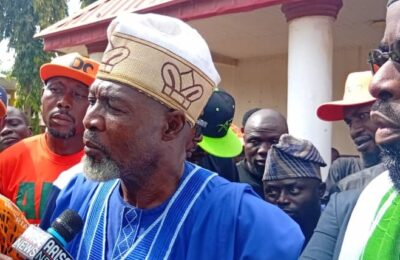The global race for artificial intelligence has quietly morphed into a geopolitical contest. That is, a new struggle for power where nations are ranked not by armies or oil reserves, but by control of data and algorithms. For Nigeria, the largest digital market in Africa, the stakes could not be higher. The world is building the future on AI, yet Africans risk becoming mere consumers of systems designed elsewhere, trained elsewhere, and governed elsewhere. In the words of Kenyan scholar Nanjala Nyabola, “If you are not at the table, you are on the menu.” Nigeria stands dangerously close to being served up.
At the center of this unfolding contest is technological sovereignty; the right of nations to control their digital destinies. But right now, our data is housed in foreign servers, our models built with foreign tools, and our digital infrastructure dependent on corporations whose loyalties lie neither to Abuja nor to Africa. “He who controls data controls the future,” warned former Google CEO Eric Schmidt. In Nigeria, the reality is starker: he who controls Nigerian data controls Nigerian society; its political behavior, its economic predictions, its security architecture, even its cultural memory. This is not innovation; this is vulnerability disguised as convenience.
The danger is not hypothetical. Generative AI models already shape what people read, believe, buy, and fear. In a country where misinformation has previously fueled violence; from election rumors to communal crises; the power of AI to amplify harmful narratives is a national security risk. Nigeria cannot afford to let foreign algorithms determine what truth looks like for 230 million people. As Prophet T.B. Joshua once said, “If you are not careful, another man’s tool can become your chain.” If Nigeria does not seize control of its digital tools, they will become chains controlling our politics, our minds, and our markets.
Economically, the implications are equally disruptive. The world is shifting from oil wealth to data wealth, yet Nigeria risks repeating its extractive past—this time with digital resources. Big tech companies already harvest Nigerian data at scale, refine it with their computational power, and sell back products trained on our digital footprints. It is the familiar colonial pattern: raw materials leaving Africa cheaply, finished products returning expensively. As the Igala proverb says, “The chicken that does not guard its eggs should not be shocked when hawks feast.” Nigeria must guard its digital eggs.
Yet the path to sovereignty is not beyond reach. Nigeria can build indigenous AI infrastructure, strengthen data protection laws, compel localization of critical datasets, and treat tech regulation with the same seriousness as financial or security policy. The nation must also empower local innovators through funding, research clusters, and public-sector adoption of homegrown AI tools. As Pastor Chris Oyakhilome often teaches, “The future does not wait for the unprepared.” Nigeria’s unreadiness in AI will not freeze global progress; it will only guarantee our marginalization.
The world is entering an era where AI will shape power the way oil once did. Nigeria, an Africa’s largest democracy and most populous nation cannot remain a spectator in a digital Cold War. Technological sovereignty is no longer a luxury; it is a survival imperative. If Nigeria fails to secure control of its data, algorithms, and digital infrastructure, then the future will be written for us. I mean, not with us. And as the Yoruba say, “A river that forgets its source will dry up.” If Nigeria forgets to claim its place in the AI age, it will find itself dried out of relevance in the world that is rapidly approaching.
– Inah Boniface Ocholi writes from Ayah – Igalamela/Odolu LGA, Kogi state.
08152094428 (SMS Only)




